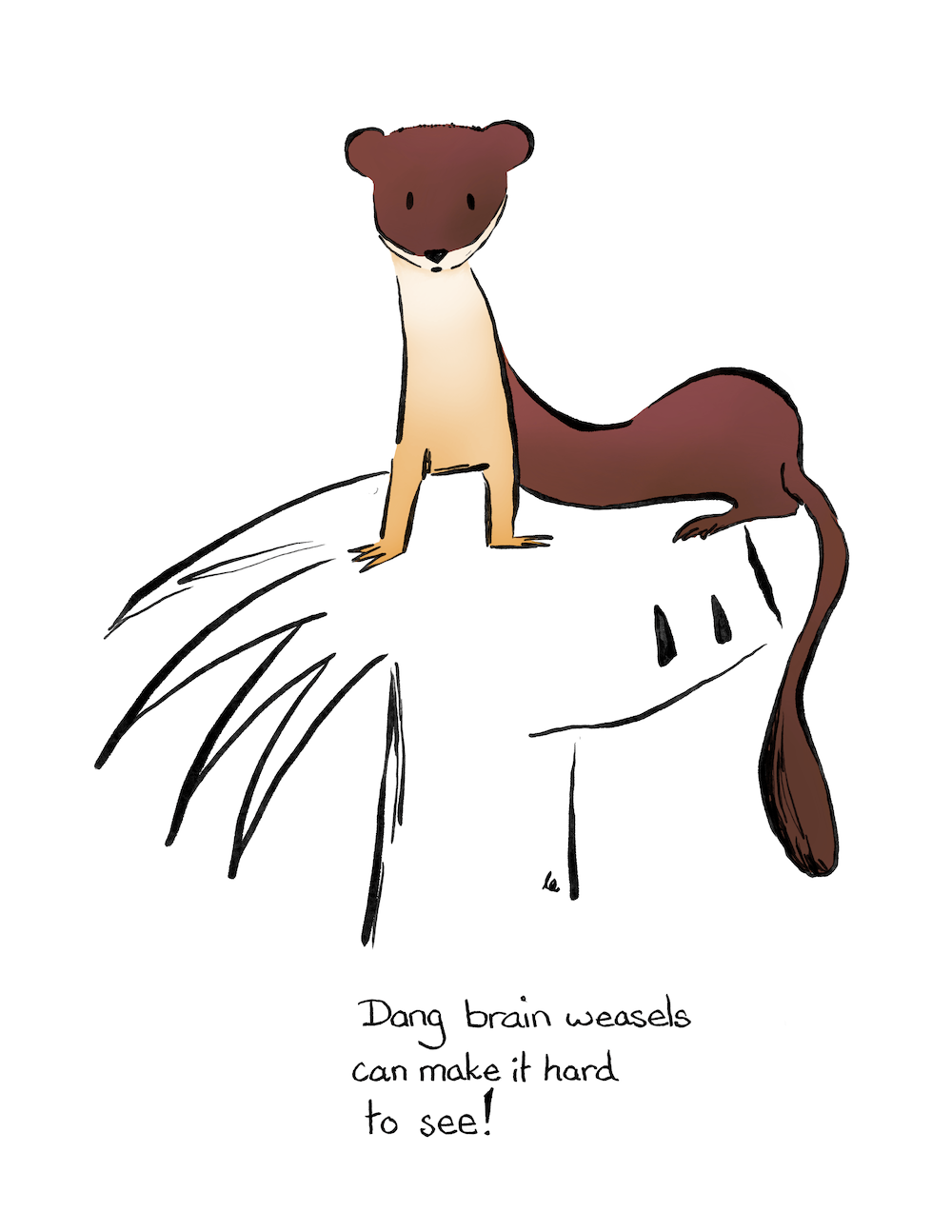Neurodivergent quality of life prioritization
Jump straight straight into the Neurodivergent Quality of Life Prioritization (NQLP) Matrix:

Creating a framework to manage the brain weasels
Whenever life doesn't go to plan, there is an opportunity to self reflect and find opportunities to learn and grow. This is a useful habit to cultivate and can turn adversity into an alchemical experience.
What is not helpful, is to look at the data, look at all the variables that go into being a human and come to the conclusion that you are a trash human/need to improve across all the criteria. This is especially challenging when you're not even sure what the criteria are, or perhaps the criteria changes as you analyze yourself from different angles.
Enter the Neurodivergent Quality of Life Prioritization (NQLP) Matrix
While the Job Search Prioritization Matrix helps you think through what sorts of jobs to look for, the NQLP Matrix helps you identify what's going well in your life and what improvements you want to prioritize. You get to choose what is important to you and self accept what's not a priority right now. You can't improve on all the criteria all the time. Maybe, for example, you need to focus on understanding when you're sleep deprived and hungry, and that in itself will help your distress tolerance around people being wrong.
If you choose to share your matrix with others it can be a helpful conversation starter. Sometimes people have narrow or stereotyped perceptions of what it means to be Autistic or have ADHD, through the matrix you have more opportunities to show the complexity of who you are. Maybe you're an Autistic person who's great with change, but oooh, emotional regulation when things are itchy? That might be on a totally different level.
The celebration is just as important as the improvements
One of the reasons quality improvement projects can fail is because they spend too much time focusing on what needs to be improved without adequate celebration of what is going well. Don't skimp on celebrating anything that you do well.
A word of caution
This matrix could be a great tool for you to go over with a loved one or even some managers. But, a manager should never expect an employee to work on this matrix. This matrix is emotionally intimate and needs to be driven by the person filling in the matrix, not by an outside person, especially not an outside person with power.
A word of thanks and an invitation
Thanks to the Write the Docs Portland conference for inspiring this spreadsheet. I created this while thinking about what sort of lightning talk I could do. I ended up doing a completely different lightning talk, but while I was at this conference I showed it to a lot of people. Thanks to everyone who asked questions, suggested extra criteria or laughed at the shared acknowledgements of imperfection. "Management of enthusiastic info dump over chat," anyone? This matrix has been enriched by the generosity of many neurodivergent people who shared their stories and challenges. What is easy to one person can't be taken for granted by another, and this matrix helps us see ourselves and others more clearly.
This resource was created with neurodivergent folks in mind, if only because neurotypical people seem to be more likely to recognize when they are hungry. That said, I bet this matrix could be useful to any human. To paraphrase Rick Green, "ADHD is like height, everyone has some. It's just that if you don't realize you're 10ft tall you might think you're just really clumsy and bad with ceiling fans, when no one else has those problems. You might be so convinced you're clumsy that you never think to try out for a basketball team."
So, neurotypical or divergent, I encourage you to try out the spreadsheet, and I'd love to hear how it goes.
- Create your own copy of the NQLP
- This link will create your own copy
- Master document, where you can leave comments and provide feedback
Media I'm enjoying
- Fabrizio Ferri Benedetti
- Janine Chan, 7 habits of increasingly technical technical writers | Write the Docs | YouTube
- Come for the growth mindset, stay for the practical tips on how to be a great colleague.
- Valeria Hernandez, Rethinking the user journey for technical documentation | Essay
- I do love a nice template!
- Oliver Burkeman, The awkwardness principle: why change rarely feels right | Essay
- Ana Akana, How to put on your face | YouTube
Want to read more blog posts?
Subscribe to my newsletter to be emailed whenever I do an update!